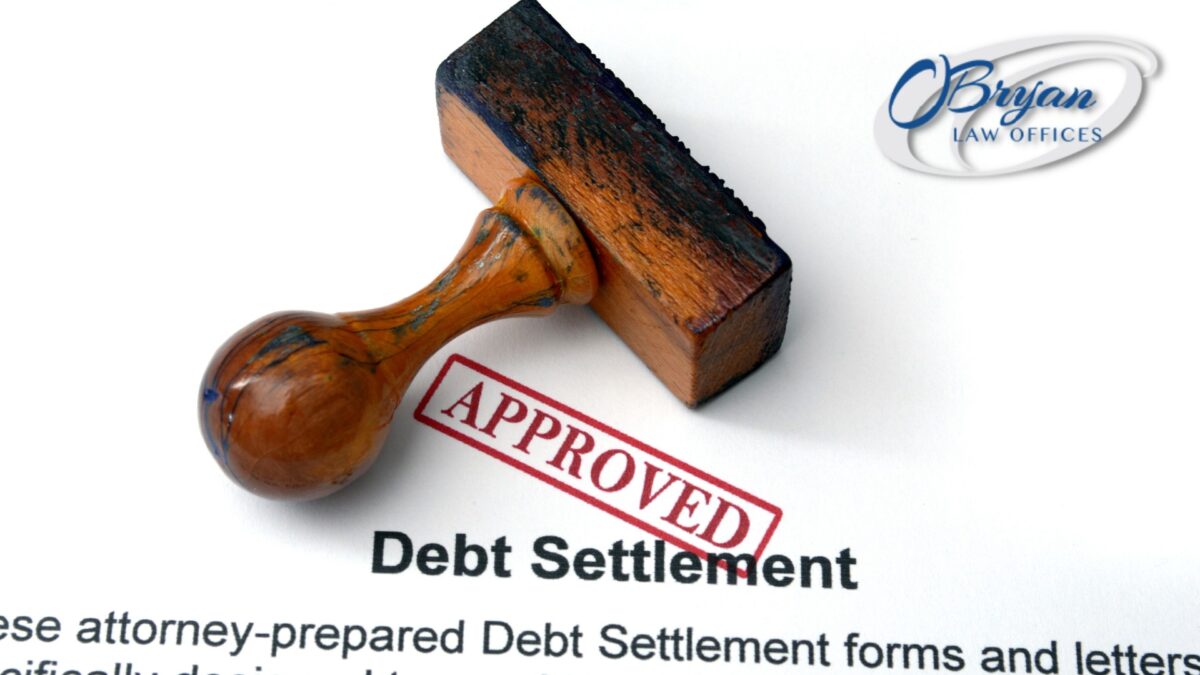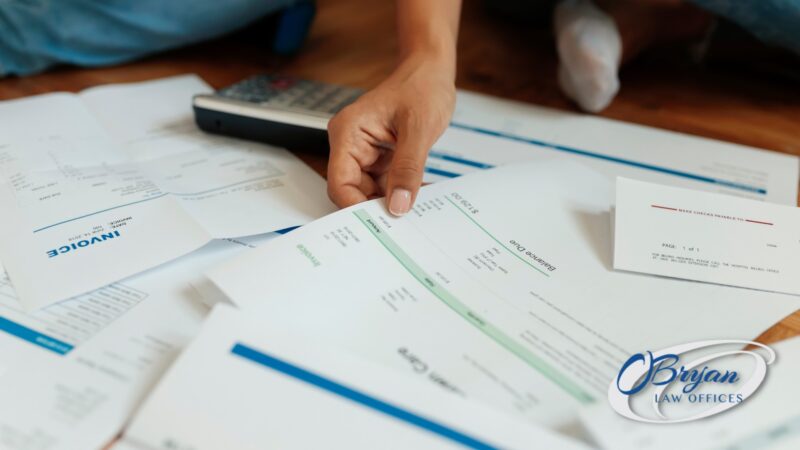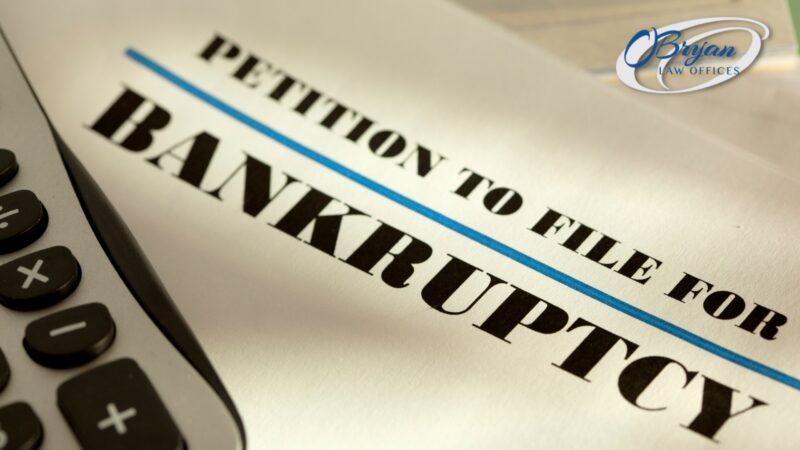Debt Settlement Pros and Cons For Kentucky Individuals


Debt settlement offers these potential benefits:
- Lower overall debt balance
- Faster payoff timeline
- Simplified monthly payments
- Avoiding bankruptcy
- Reduced collection calls and lawsuits
However, debt settlement comes with significant disadvantages:
- Damage to credit score
- Taxable forgiven debt
- Fees from third-party settlement firms
- No guarantee all creditors will agree
- Potential for continued lawsuits
- Companies withholding your funds
- You end up paying off more debt than you started with
Struggling with overwhelming debt can feel like being trapped in a financial quicksand – the harder you try to escape, the deeper you sink. Many Kentucky residents face mounting credit card debt, medical bills, and other unsecured obligations that continue to grow despite their best efforts.
Without decisive action, these debts can lead to wage garnishment, lawsuits, and severe long-term damage to your financial future.
Our Louisville bankruptcy lawyer will provide the expert guidance you need to understand all your debt relief options, including whether debt settlement is right for your situation.
Is debt settlement a good idea?
Debt settlement is a process where you negotiate with creditors to pay less than the full amount you owe to resolve your debt. It can be appropriate for people with significant unsecured debt who can make lump-sum payments but want to avoid bankruptcy, though it’s not the right solution for everyone.
Consider the case of a Kentucky homeowner who successfully reduced $40,000 in credit card debt to $24,000 through strategic debt settlement negotiations. While this saved her from filing bankruptcy and protected her home equity, the process took nearly 18 months and temporarily lowered her credit score.
According to the Federal Trade Commission (FTC), debt settlement can be a legitimate option for debt relief, but consumers should understand all implications before proceeding. Attorney-led debt settlement typically produces better results than working with non-attorney debt settlement companies.
💡 Understand the Nuance – Debt settlement isn’t one-size-fits-all. It helps some Kentuckians avoid bankruptcy, but timing, debt type, and financial goals matter
Benefits of debt settlement
Lower overall debt balance
Debt settlement allows you to resolve your obligations for less than the full amount owed. Kentucky clients often settle debts for 40-60% of the original balance, though results vary based on creditor policies and your financial circumstances.
Legitimate settlements include legal documentation that the debt is satisfied in full, preventing future collection attempts on the same debt.
Faster payoff timeline
Through debt settlement, you can potentially resolve debts that would take decades to pay off through minimum payments. Most settlement programs aim to resolve all included debts within 2-4 years, compared to the 20+ years typical minimum payments might require.
This accelerated timeline helps Kentucky residents move forward with their financial lives much faster than traditional repayment plans.
Simplified monthly payments
Rather than juggling multiple due dates, minimum payments, and creditor demands, a structured debt settlement program can streamline your obligations. This organization makes the debt resolution process more manageable for many struggling debtors.
Some attorney-led programs can consolidate your payments into one monthly amount, reducing the stress of managing multiple accounts.
Avoiding bankruptcy
While bankruptcy is a powerful legal tool for debt relief, some Kentucky residents prefer to avoid it due to concerns about public records, effects on security clearances, or personal preferences. Debt settlement provides an alternative path to debt relief.
Our lawyers structure settlements with creditor cooperation in mind, often achieving settlements that protect clients’ assets while avoiding the more formal process of bankruptcy.
Reduced collection calls and lawsuits
Professional debt settlement negotiation can halt the stressful cycle of collection calls, letters, and potential legal action. Once creditors agree to settlement terms, their collection efforts stop on the settled accounts.
Having our attorney representation during settlement provides additional protection against harassment and improper collection tactics.
Contact us for a free consultation and find out if debt settlement is the right solution for your financial situation.
Disadvantages of debt relief
Debt relief options, including settlement, involve important tradeoffs that should be carefully considered. At O’Bryan Law Offices, we thoroughly explain each client’s risks and alternatives before recommending any debt resolution strategy.

Damage to credit score
Debt settlement typically requires falling behind on payments, which will negatively impact your credit score. Settled accounts are usually reported as “settled for less than the full amount,” which creditors view less favorably than accounts paid in full.
Credit score damage can last for up to seven years, though its impact diminishes over time. Most Kentucky clients see their scores begin to recover within 12-24 months after completing their settlements.
Taxable forgiven debt (IRS 1099-C)
⚠️ When creditors forgive more than $600 of debt, they typically issue a 1099-C form, and the IRS considers this forgiven amount as taxable income. For example, if you settle a $10,000 debt for $4,000, you may owe taxes on the $6,000 that was forgiven.
The IRS provides guidance on how canceled debt is taxed. However, exceptions exist for insolvency or bankruptcy, which is why professional tax advice during debt settlement is essential.
Fees from third-party settlement firms
Many debt settlement companies charge fees ranging from 15-25% of the enrolled debt or the amount saved. These high fees can significantly reduce the benefit of any settlements achieved.
Attorney-led debt settlement often provides better value through more comprehensive services and stronger negotiation positions with creditors.
No guarantee all creditors will agree
Not all creditors participate in debt settlement negotiations. Some may refuse to settle or offer minimal discounts, especially if they believe you have the means to pay the full amount.
Certain types of debts, such as student loans, recent taxes, and secured debts, are typically more difficult or impossible to settle through standard negotiation.
Potential for continued lawsuits
Creditors may pursue legal action while you’re attempting to settle, particularly if you’ve stopped making payments. Without proper legal representation, you might face judgments, liens, or wage garnishment during the settlement process.
Our attorney will provide representation if lawsuits arise, offering protection that non-attorney debt settlement companies cannot provide.
Companies withholding your funds
As mentioned on our current blog, many debt settlement companies require you to deposit money into a dedicated account while they negotiate. They control this account and determine when to make settlement offers to your creditors. The Federal Trade Commission warns consumers that “creditors have no obligation to negotiate settlement of the amount you owe.
So there is a possibility that your debt settlement company will not be able to settle some of your debts – even if you set aside the monthly amounts required by your debt settlement program.”
You end up paying off more debt than you started with
Our current blog post points out that some debt settlement companies “advise consumers to stop paying their bills, which generates late fees and interest payments and can cause your debt to increase faster than the debt settlement company can settle. It’s also common that these debt settlement companies take their fees from you before they settle any debt at all.”
| Debt Settlement Summary | |
|---|---|
| Pros | Cons |
| Reduce debt by 40-60% on average | Credit score typically drops 70-130 points |
| Resolve debt in 2-4 years vs. decades of minimum payments | Forgiven debt over $600 is taxable income |
| Legal protection when using attorney-led services | Risk of lawsuits during negotiation period |
| One structured payment plan vs. multiple creditor payments | Not all creditors will agree to settle |
| Potentially keep assets that might be lost in bankruptcy | Upfront fees with some settlement companies |
| Stop collection calls once settlement is reached | Balances increase during negotiation period |
| Avoid bankruptcy on credit report | Settlement notation remains on credit for 7 years |
Debt relief programs pros and cons
Debt settlement is just one of several options for resolving overwhelming debt. Each approach has its own advantages and disadvantages to consider.
⚖️ Structure Matters – The best outcome often comes from understanding who manages the plan: lawyer, nonprofit, or lender.
Debt consolidation loan
A debt consolidation loan involves borrowing money to pay off multiple debts, leaving you with one monthly payment, ideally at a lower interest rate.
Pros:
- Simplifies multiple payments into one
- Potentially lower interest rate
- No direct negative impact on credit score
- Fixed repayment timeline
Cons:
- Requires good credit for favorable terms
- May require collateral (home equity, etc.)
- Doesn’t reduce the principal amount owed
- Many Kentucky residents don’t qualify due to debt-to-income ratios
Debt management plan
A debt management plan (DMP) is administered by a credit counseling agency that works with creditors to reduce interest rates and set up a structured repayment plan.
Pros:
- Lower interest rates and waived fees
- Single monthly payment
- Minimal credit score impact
- Structured plan with timeline (typically 3-5 years)
Cons:
- Still pay 100% of principal balance
- Limited to participating creditors
- Monthly administrator fees
- Restrictions on using credit during the plan
Bankruptcy (Chapter 7 and Chapter 13)
Bankruptcy is a legal process that provides debt relief and protection from creditors through the federal court system.
Pros:
- Chapter 7 can eliminate most unsecured debts completely
- Immediate legal protection from creditors
- Relatively quick process (3-6 months for Chapter 7)
- Kentucky bankruptcy laws provide generous exemptions to protect assets
Cons:
- Public record for 7-10 years
- Credit score impact for several years
- Not all debts can be discharged
- Some assets may be at risk in Chapter 7
- Chapter 13 requires 3-5 year repayment plan
Debt settlement
As discussed earlier, debt settlement involves negotiating with creditors to pay less than the full amount owed.
Pros:
- Potential to significantly reduce debt balances
- Faster resolution than minimum payments
- Less formal than bankruptcy
- Works for many types of unsecured debt
Cons:
- Credit score damage during the process
- Potential tax liability on forgiven amounts
- No guarantee of successful settlements
- Risk of lawsuits during negotiation period
| Program | Average Timeline | Debt Reduction | Monthly Payment | Credit Impact | Legal Protection |
|---|---|---|---|---|---|
| Debt Consolidation | 2-5 years | None | One payment, often lower | Minimal | None |
| Debt Management | 3-5 years | Interest only | One payment, often lower | Minor | None |
| Chapter 7 Bankruptcy | 3-6 months | Up to 100% | N/A after filing | Significant | Comprehensive |
| Chapter 13 Bankruptcy | 3-5 years | Varies | Based on disposable income | Significant | Comprehensive |
| Debt Settlement | 1-4 years | 40-60% possible | Varies | Moderate to significant | Limited unless attorney-led |
Credit card modification pros and cons
Credit card modification is a process where the original creditor agrees to change the terms of your credit card agreement, usually by reducing interest rates, extending the repayment period, or sometimes forgiving a portion of the balance.
Pros:
- Can be done directly with original creditors
- May avoid negative credit reporting if arranged before delinquency
- No third-party fees
- Maintains relationship with creditor
- Can prevent accounts from going to collections
Cons:
- Limited reduction in principal balance
- Credit cards usually closed during modification
- Not available from all creditors
- May still require lump sum payments
- Limited negotiation leverage for consumers
The Consumer Financial Protection Bureau (CFPB) recommends contacting creditors directly if you’re experiencing hardship, as many have hardship programs that aren’t widely advertised.
Hypothetical Scenario: A Lexington resident who negotiated directly with his credit card company for a hardship program after a medical emergency. The creditor reduced his interest rate from 24% to 6% and agreed to a 48-month payoff plan, helping him avoid charge-off without significantly impacting his credit score.
Alternatives to debt settlement
Sometimes, neither debt settlement nor bankruptcy is the right choice. Here are several alternatives to consider:
- Do-it-yourself settlements: Some people attempt to negotiate directly with creditors. This approach can work for one or two accounts but becomes challenging with multiple creditors. Remember that for-profit debt settlement companies take a large fee, often 25 percent of what they save you, and they may not be successful with all your accounts. Moreover, they can only negotiate—they typically aren’t authorized to represent you in lawsuits.
- Credit counseling: Nonprofit credit counseling agencies offer debt management plans that may reduce your interest rates and fees. While they don’t reduce the principal balance, they provide structured repayment plans that can help you become debt-free in 3-5 years.
- Debt consolidation loans: If your credit score is still relatively good, you might qualify for a debt consolidation loan with a lower interest rate than your current debts. This approach simplifies payments but doesn’t reduce the amount owed.
⚠️ Counseling ≠ Settlement – Credit counseling agencies don’t reduce principal—don’t confuse lowered interest with reduced debt.
Hypothetical Scenario: A Kentucky teacher who attempted DIY settlement with three credit card companies. Two ignored her offers completely, and one refused to negotiate until she was 90 days delinquent. After consulting with an attorney, she received responses from all creditors within two weeks and settled all accounts for approximately 50% of the balances.
Debt Settlement Scams to Avoid
Federal and state agencies receive thousands of complaints about debt settlement companies that:
- Charge fees before settling any debts
- Guarantee to settle all your debts for a promised percentage
- Claim they can stop all collection calls and lawsuits
- Tell you to stop communicating with creditors without explaining the consequences
- Claim a “new government program” will eliminate your debt
According to the Kentucky Attorney General’s Office, consumers should be wary of companies that require upfront fees or promise specific results. Legitimate debt settlement services discuss risks and don’t guarantee outcomes.
Before working with any debt settlement company, check their reputation with the Better Business Bureau and state consumer protection agencies.
Additional reading: why you should never pay a collection agency (without proper legal advice)
What to expect when working with our lawyers
If you’re like many of our clients, you’re motivated to pay your debts but need some help. Our clients typically:
- Have experienced a life event (job loss, medical emergency, divorce) that disrupted their finances
- Are dealing with multiple creditors and collection agencies
- Are receiving threatening collection calls or letters
- Are facing or worried about potential lawsuits
- Want to avoid bankruptcy if possible but need significant relief
Working with our attorney-led debt settlement program provides peace of mind through legal protection that non-attorney services cannot offer. If a creditor files suit during the settlement process, our attorneys will represent you in court – something debt settlement companies cannot do.
Our process begins with a thorough financial analysis during your free consultation. We’ll review your debts, income, expenses, and assets to determine if debt settlement is appropriate for your situation. If it is, we’ll develop a customized plan that fits your budget and goals.
Throughout the process, we negotiate directly with your creditors using our established relationships and legal expertise. We provide regular updates and are always available to answer your questions or address concerns that arise.
What sets our approach apart is that we evaluate all options, not just settlement. If bankruptcy would better serve your needs, we’ll recommend that path instead. Our goal is to find the most effective solution for your specific situation, not to sell you on a one-size-fits-all program.
Our bankruptcy lawyer in Lexington will help you understand all your debt relief options and choose the path that best suits your unique situation. Contact us today at (502)-339-0222 for a free, no-obligation consultation.
Our Conclusion on Debt Settlement Pros and Cons

Debt settlement can be an effective solution for Kentucky residents struggling with unsecured debt, particularly when other options seem unworkable. However, its success depends heavily on your specific financial situation, the types of debt you have, and the approach taken.
For many of our clients, the most important factor is having knowledgeable legal guidance throughout the process. An attorney-led debt settlement program offers significant advantages over for-profit debt settlement companies, including legal protection, tax guidance, and the ability to adapt if circumstances change.
Before making any decision about debt relief, schedule a consultation with our qualified attorney who will review your complete financial picture and recommend the best approach for your unique situation. Whether that’s debt settlement, bankruptcy, or another option, having expert advice can make the difference between continued financial stress and a path to true relief.
FAQs
Yes, debt settlement typically causes a temporary decline in your credit score. When you settle a debt for less than the full amount, it’s usually reported to credit bureaus as “settled” rather than “paid in full.” This negative mark can remain on your credit report for up to seven years, though its impact diminishes over time as you rebuild your credit.
Forgiven debt over $600 is generally considered taxable income by the IRS, requiring creditors to issue a 1099-C form. However, exceptions exist if you’re insolvent (your debts exceed your assets) at the time of forgiveness. Our attorneys will help you understand the potential tax implications of debt settlement and work with tax professionals to address these issues.
The debt settlement process typically takes 1-4 years from start to finish, depending on your financial situation and how quickly you can accumulate funds for settlements. Individual settlements might be reached sooner, but resolving all accounts takes time. Our attorney-led program will often settle debts more quickly than typical debt settlement companies due to our legal leverage and creditor relationships.
Most debt settlement strategies involve stopping payments to create leverage for negotiation, as creditors have little incentive to settle debts that are current. However, this approach carries risks including credit damage, increased balances from fees and interest, and potential lawsuits. Our attorneys will advise on the best approach for your specific situation, sometimes negotiating while you remain current on certain accounts.
Debt settlement works best for people with significant unsecured debt (typically $10,000 or more) who have experienced financial hardship but have some ability to make payments. It’s generally not right for those who can afford to pay their debts in full, those who qualify for Chapter 7 bankruptcy with few assets at risk, or those with primarily non-negotiable debts like student loans or recent taxes.


